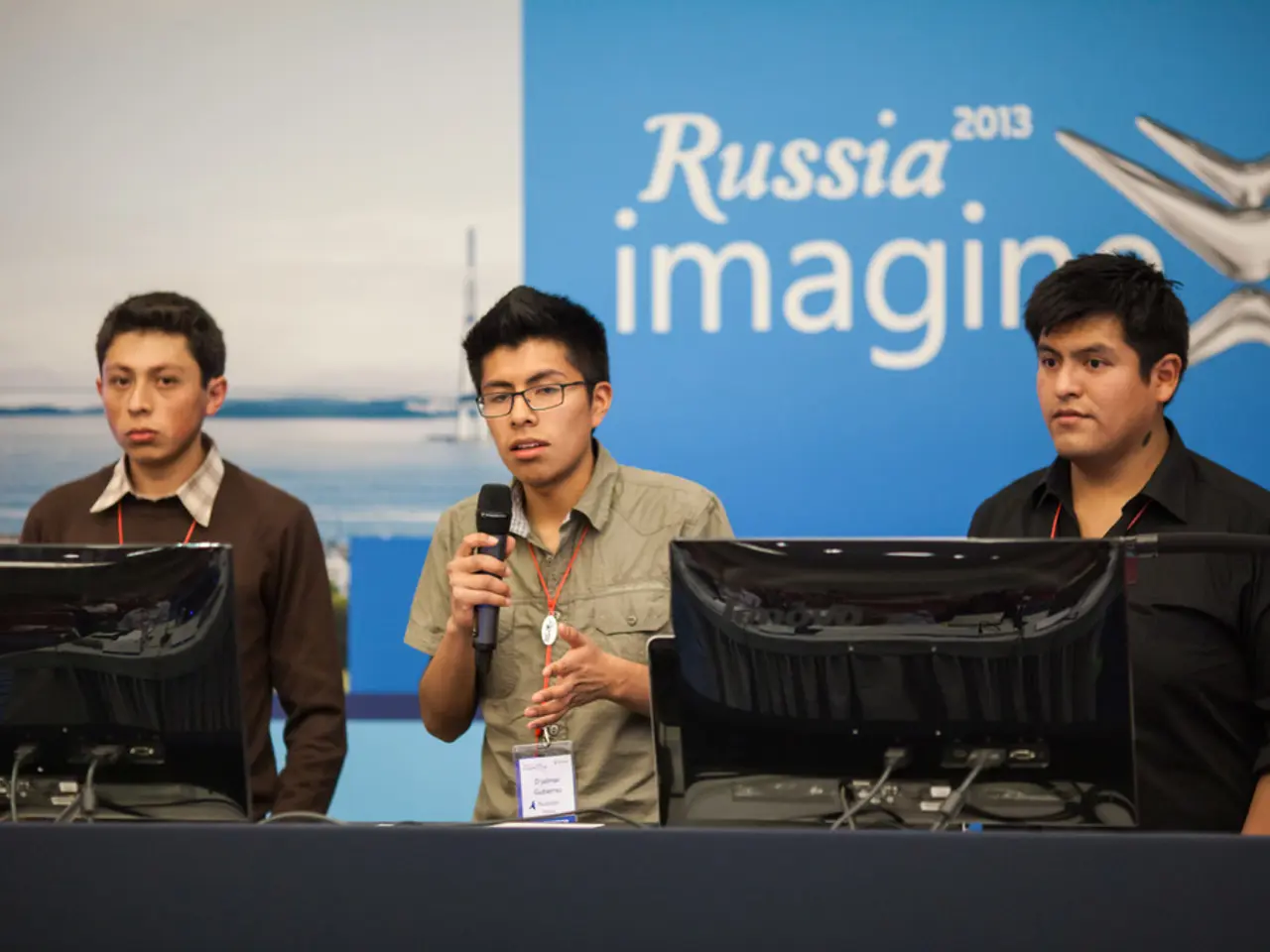Tesla manufactured and delivered 61,662 electric vehicles from its Shanghai factory in May, marking a 15% decrease compared to the same period last year.
Tesla Faces Challenges in China, Europe, and Canada
In the month of May 2025, Tesla delivered 61,662 Model 3 and Model Y units from Giga Shanghai, marking a 5.5% increase from April's sales of 58,459 units [1]. However, this growth was not enough to offset the ongoing struggles Tesla is facing in various global markets.
Intensified Competition from Chinese EV Makers
Tesla's sales have been affected by increased competition from Chinese automakers such as BYD, Xiaomi, Nio, and Xpeng. These companies offer lower-priced EVs with attractive features, posing a significant challenge to Tesla's market share [1][2][3]. BYD, in particular, has seen a surge in sales, tripling its numbers in Germany while Tesla's sales dropped by 60% in the same month [1][2]. Chinese EV exports have also grown substantially, accounting for 40% of global EV exports, with BYD expanding rapidly in Europe and targeting markets like Mexico [2][3].
Market Share Erosion and Declining Sales Figures
Tesla's market share has declined significantly, falling from 75% in the U.S. in 2022 to about 43% in 2025, and in Europe, it holds just 1.6% of the EV market [2][3]. Global deliveries in Q2 2025 were just under 385,000 vehicles, lagging behind BYD’s 606,000 battery-electric vehicles sold in the same period [3].
Product and Production Challenges
Tesla's aging Model 3 and Model Y lineups are losing appeal compared to newer, often more affordable EV models from competitors [1]. Production disruptions related to retooling for refreshed models, such as the Model Y, have impacted supply [1]. To address pricing competitiveness, Tesla has announced plans for a more affordable EV in 2026 [3].
Regulatory and Feature Availability Issues in Europe
Tesla's Full Self-Driving (FSD) feature, which is available in the U.S., is not yet approved in Europe. This lack of approval reduces Tesla’s value proposition in the region. CEO Elon Musk noted that sales in Europe might improve once this supervised FSD is available to customers [2].
Political and Reputation Factors
CEO Elon Musk’s political activities have reportedly alienated some European buyers, contributing to declining interest and leading to protests at Tesla showrooms [1][4]. Economic uncertainties and potential phase-out of key EV incentives, including tax credits, especially in North America, add further headwinds [4].
Macro-Economic and Market Conditions
Tariff-driven economic uncertainties and the threat of scaling back or eliminating EV incentives (such as the $7,500 U.S. tax credit) dampen demand for Tesla vehicles in some markets [4][3].
In Canada, Tesla sales are struggling due to increased tariffs, which have raised the prices of Tesla vehicles by more than 20%. The Canadian government's decision to exclude Tesla from the iZEV rebate program is not a new development; it is due to political backlash and the increased prices caused by tariffs [1]. The Canadian government is planning to reinstate the iZEV rebate program, but Tesla will not be included as long as U.S. tariffs on Canada remain in effect [1].
The Canadian government's decision to exclude Tesla from the iZEV rebate program is independent of the company's sales performance in Canada. In fact, May 2025 was Tesla's second-worst month in the past two years, with only February 2024 having lower sales (60,635 units) [1]. The exclusion of Tesla from the iZEV rebate program is a result of political considerations, not a reflection of the company's quality or performance.
Despite these challenges, Tesla has taken steps to boost its sales in China. Both the Model 3 and Model Y were added to China's rural EV promotion program this week, and Tesla has introduced 0% financing on the new Model Y to attract more domestic buyers [1].
[1] Reuters, (2025), Tesla's sales drop in China, Europe, and Canada in 2025 is influenced by multiple interrelated factors. [2] Bloomberg, (2025), Tesla's Sales in Europe Plummet as Political Controversy Swirls Around Elon Musk. [3] CNBC, (2025), Tesla's Q2 deliveries fall short of expectations, lagging behind BYD. [4] The Globe and Mail, (2025), Why Canada's Tesla sales are struggling.
- As Tesla grapples with challenges in various global markets, the automotive industry in China, particularly competitors like BYD, Xiaomi, Nio, and Xpeng, are posing significant threats with lower-priced EVs and attractive features, causing Tesla's sales to drop and market share to erode.
- Simultaneously, the financial aspect is also a concern for Tesla, as their global deliveries in Q2 2025 fell behind those of Chinese EV maker BYD, and the company is experiencing difficulties in the energy sector due to the aging Model 3 and Model Y lineups losing appeal compared to newer, more affordable EV models from competitors.
- Meanwhile, in the technological arena, the lack of approval for Tesla's Full Self-Driving feature in Europe reduces its value proposition, and political factors, such as Elon Musk's controversy and increased tariffs that lead to the exclusion of Tesla from incentive programs, are also negatively impacting sales in Europe, Canada, and potentially North America.




